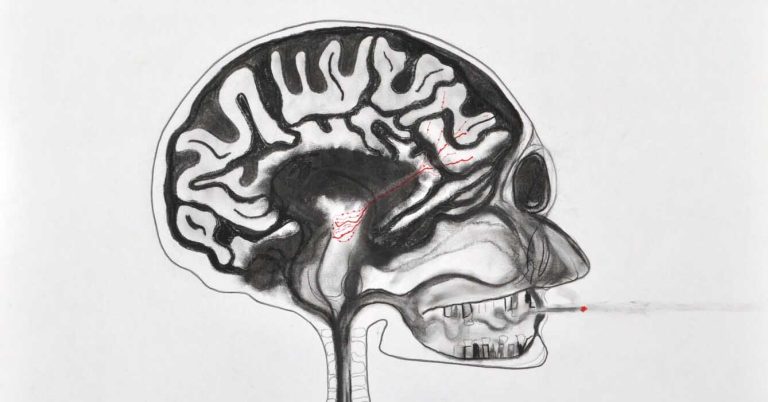
At the recent Conservative Party conference in Manchester, Theresa May’s speech turned into the stuff of every presenter’s nightmares, something both ironic and apposite, given that her main theme was the return to the ‘British dream’.

I don’t want to revisit the quarrels and misfortunes of our particularly hapless band of current politicians. The speech made me curious for a different reason, stemming from the now notorious falling letters from the tedious slogan on the wall behind May. The first letter to fall was an ‘F’ from ‘BUILDING A COUNTRY THAT WORKS FOR EVERYONE’. To the delight of comedians, an ‘E’ fell off later.
Here’s the problem. There was near universal assent that the tumbling letters were a sign. They added extra sense and emphasis to the other disasters befalling the Prime Minister. Yet what’s the difference in meaning between ‘BUILDING A COUNTRY THAT WORKS FOR EVERYONE’ and ‘BUILDING A COUNTRY THAT WORKS OR EVERYON ’? And does the second slogan make any sense at all anyway?
In my 2016 book A Process Philosophy of Signs and subsequent work, I have been working on the idea that we shouldn’t simply focus on meaning and structure for signs. Instead, it is more helpful to think of signs as dynamic processes involving selections, effects on an environment and diagrams of those effects. Meaning and structure are included in these processes, but they no longer take priority.
Looked at in this way, the problem of the falling ‘F’ is no longer a puzzle about what ‘WORKS OR EVERYON ’ means. Instead, the challenge is to detect and describe the selections, effects and diagrams around the process of the dropped letter.
A process view is closer to the way political commenters reacted to the speech disaster: they selected its main components and described their effects on a wider world consisting of May, the conference audience, the press, the electorate, the country, the EU, and so on. To give you some examples, in the Guardian, David Mitchell wrote:
The Conservatives took their events management back in-house two years ago to cut costs. That’s quite the metaphor for Brexit. They stopped sending money away to outsiders, took control themselves, and everything fell to bits … This bad sign is an incredibly bad sign – about the Tories and possibly the whole country.
‘Is the writing on the wall for Theresa May and Britain?‘
Against the mainstream, Andrew Rawnsley in the Observer depicted a fortunate Prime Minister May, protected from criticism of the content of her speech and remaining the sole option for the warring sides of the Conservative Party. But he still commented:
For the most exquisitely apposite metaphor for what has happened to her premiership, you couldn’t beat the spectacle of Mrs May gulping water as the stage set fell apart.
‘Outrageous good fortune smiles once again on Theresa May’
When the second letter fell, Philip Sim from the BBC tweeted:
We’ve also dropped an E now, which actually starts to explain some of the things that have happened in the last hour pic.twitter.com/6IU6hxhTpR
— Philip Sim (@BBCPhilipSim) 4 October 2017
In opposition to objective certainty in language, a process philosophy of signs invites debate between different diagrams or descriptions of the dynamic effects of selections in the sign. Some of these selections will be made by fate (or poor magnets); others will be made by writers. The main lesson is that their effects will be ongoing, and open to discussion, long after Theresa May departs the political scene.
By James Williams
James Williams is Honorary Professor of Philosophy and member of the Alfred Deakin Institute for Citizenship and Globalization at Deakin University. He has published widely on contemporary French philosophy and is currently working on a critique of the idea of extended mind from the point of view of process philosophy.
 | Related links |





